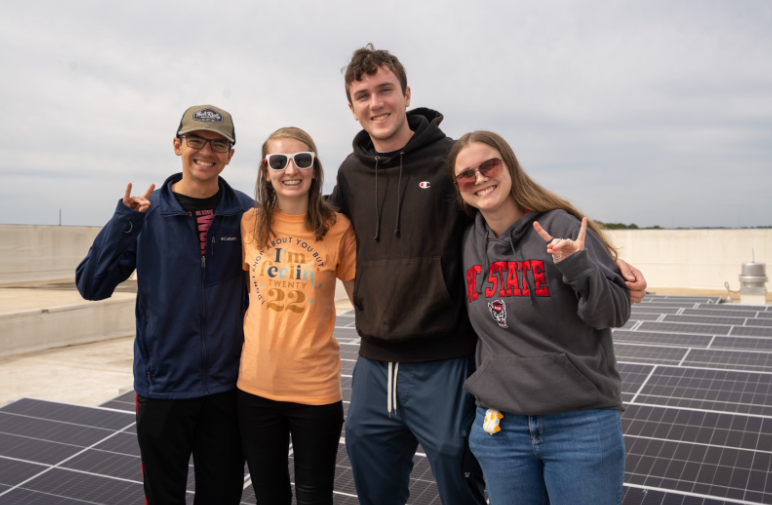Energy-Efficient Buildings Drive Campus Learning and Research

Apart from its primary responsibility of monitoring and reducing energy and water waste on campus, NC State Energy Management continues to support the Facilities Division’s goals of improving the student educational experience through applied learning opportunities. Energy Management provides data for energy-related research, hosts interns, leads educational facility tours and collaborates with NC State research centers across colleges.
Not all learning happens in a classroom. Energy Management and the University Sustainability Office currently use the 154kW Fitts-Woolard Hall PhotoVoltaic (PV) project as a learning tool for students. This educational opportunity significantly supports the Design for Discovery and the Design for Energy framework that the foundation of the Fitts-Woolard project was based upon from inception. When the PV becomes operational, Energy Management plans to provide accessible dashboards that support the Engineering on Display intent of the building.

Members of the NC State Electrical and Computer Engineering Senior Design team pose in front of the Fitts-Woolard Hall solar project.
Energy Management also mentors individual students, Senior Design and graduate-level capstone projects. Energy Management in collaboration with the University Sustainability Office has recently co-mentored students on Energy Modeling and Net Zero Facilities Design. Four Senior Design Students were trained to confidently execute code compliance Energy Modeling on Revit, SketchUp, OpenStudio and EnergyPlus. The students also modeled on the Helioscope and System Advisor Module (SAM). This exercise supports the campus goals of building an innovative community of professionals working on real-world applications to have a significant impact on University Sustainability.
Finally, Energy Management continues to support modernizing campus buildings with Advanced Control Systems for research applications and to reduce energy use intensity by 40% from the 2003 baseline. This strategy ensures campus buildings are integrable with advanced analytics packages and Machine Learning Algorithms for energy optimization. This also creates substantial academic benefits as campus buildings can be pragmatically deployed as real-world prototype testbeds for various innovative artificial intelligence technology commercialization emanating from the NC State Campus.
There are numerous opportunities for faculty, staff and students to collaborate with Energy Management and help achieve these goals. For more information, contact save-energy@ncsu.edu or visit energymanagement.ncsu.edu.